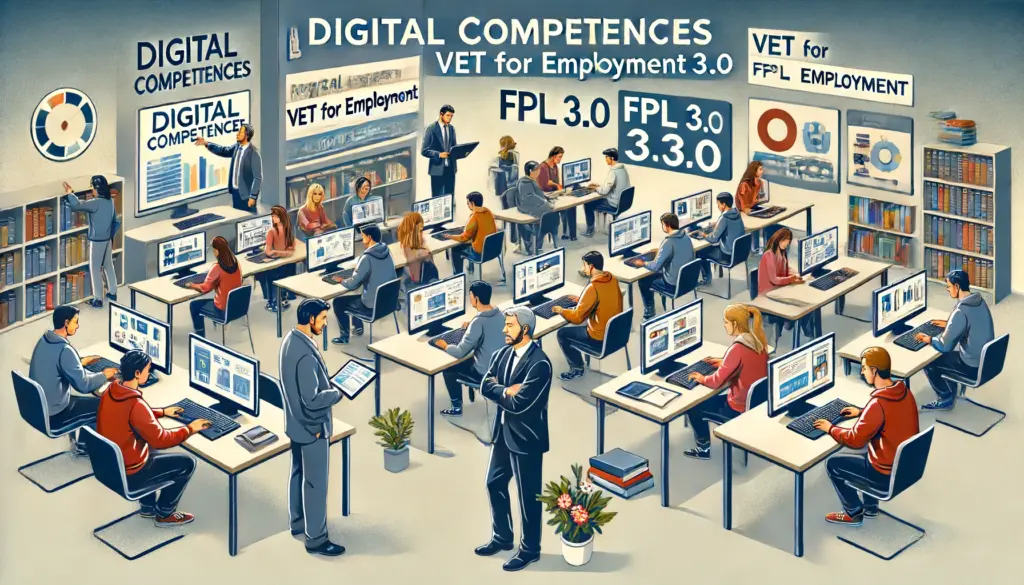Digital Skills Landscape in Europe
Across Europe, the digital competency landscape varies significantly. On average, around 56% of Europeans possess at least basic digital skills. A significant portion of the European workforce has these basic digital skills, providing a strong foundation for further development. Many companies face challenges in filling IT positions due to high demand, underscoring the need for continuous digital competency development. This indicates for increasing Digital Skills in VET in Europe.
The European Union addresses these gaps through initiatives like the Digital Skills and Jobs Coalition, which develops digital skills at all levels of society. The European Commission aims for 80% of the population to have basic digital skills by 2030. Additionally, projects under the European Social Fund (ESF+ and ERD) provide upskilling and reskilling opportunities for both employed and unemployed individuals. These initiatives enhance the digital competencies of the European workforce, ensuring they are well-prepared for the evolving job market.

Flipped Learning 3.0 for VET for Employment
“Flipped Learning 3.0 for VET for Employment” refers to an advanced educational approach where traditional teaching methods are reversed. In this model, vocational education and training (VET) learners engage with instructional content at home and apply their knowledge through interactive, hands-on activities during in-class time, enhancing their employability skills. This leads to these considerations:
-
Flipped Learning 3.0 Framework
Educators can straightforwardly implement the flipped learning 3.0 framework, significantly enhancing the effectiveness of vocational training. This method emphasizes interactive, in-class exercises, continuous feedback, and personalized instruction, which better prepares students for the digital workforce. The system requires minimal outside study time, making it particularly suitable for working adults who prefer to concentrate on practical skills during class.
-
Advantages for VET for Employment
